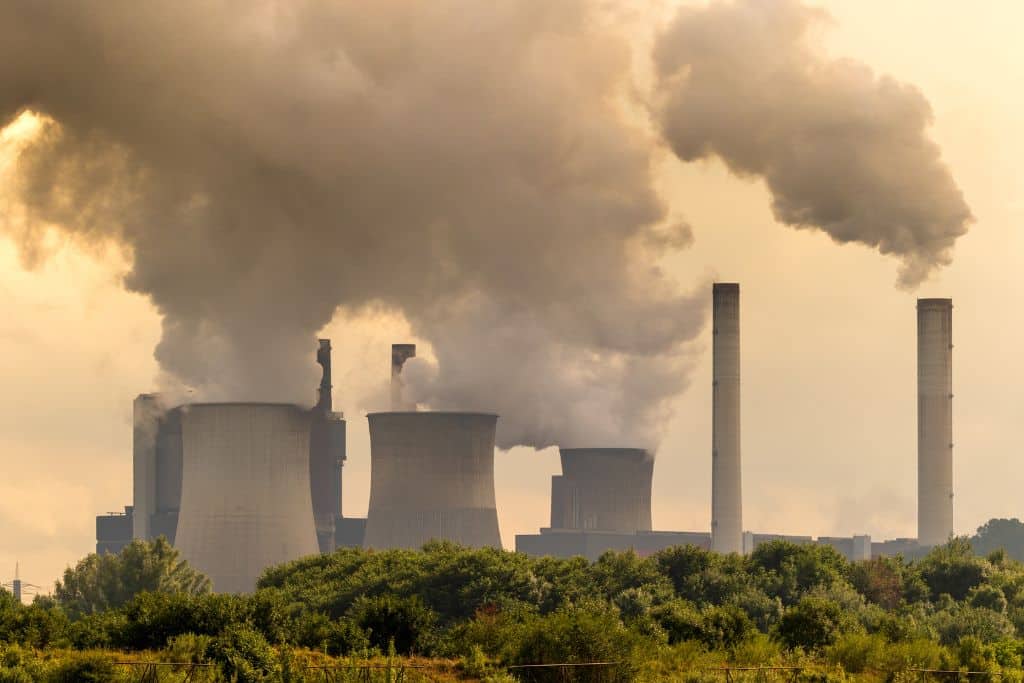A clean energy transition is not an easy task for many African nations. Country-specific narratives are crucial to a comprehensive understanding of energy transition in the continent. Here are some of the obstacles that South Africa faces along the way.
—
South Africa’s Just Energy Transition Partnership
South Africa’s energy transition revolves around its ambitious Just Energy Transition Partnership (JETP). Primarily, the Partnership seeks to hasten the decarbonisation of its economy in fulfilment of Nationally Determined Contribution emission goals. This is borne out of a realisation that 77% of South Africa’s greenhouse gas emissions emerge from ‘dirty’ energy sources like coal. For this reason, three priority areas are identified in the Plan – the energy sector, electric vehicles, and green hydrogen.
South Africa’s JETP emphasises a ‘just’ transition to cleaner sources of energy. As found on the website of the Presidential Climate Commission, the transition “must be fair and perceived to be fair”. So, an effective transition is envisioned to not only provide new and better jobs but to also eradicate poverty and ensure social justice.
However, transitioning to clean energy sources is not so simple in South Africa. Here are 3 challenges to South Africa’s clean energy transition plans:
1. Climate financing
Financing has been one of the main roadblocks to South Africa’s plan. Although COP26 yielded an $8.5 billion pledge by the US and EU countries – including Germany, France, and the UK – negotiations have not been without issues. For instance, South Africa wants a greater proportion of grant money to support its $95 billion energy transition plan, wary of the detrimental nature of loans on the country’s existing debt.
Yet, the country recently announced loan agreements with Germany and France. Although each country tabled €300 million (US$310 million) – which is repayable over 20 years and is perceived by many to be on favorable grounds – Daniel Mminele, head of the Presidential Climate Finance Task Team, stresses that climate adaptation in the Global South should not come at the cost of climate-related debt. Similarly, South Africa’s President Cyril Ramaphosa emphasises the need for Global North countries to take on the financial cost of the shift.
“Our continent only contributed 1% of the damage that’s been done to the climate, and we believe that the more industrialized countries that are more developed need to live up to the commitment that they have made,” Ramaphosa said at COP27.
Thus, climate financing remains a contentious issue for the Global South’s energy transition plans. Whereas one group argues that the global south gets loans on favorable terms that are unobtainable elsewhere, another remains steadfast, arguing for the need for more grant-based climate financing.
You might also like: South Africa Considers Burning Heavy Fuel Oil to Ease Record Load-Shedding Levels
2. Shutting down a majority black-owned coal industry
Another issue has to do with the governing African National Congress’s wariness to damage the country’s coal industry, given its status as one of the few sectors that are black-majority owned. For this reason, environmental analysts are concerned about the sincerity of the country’s energy transition plans. Although the state-owned power company, Eskom, plans to phase out almost half of its coal-dependent power in the subsequent 13 years, South Africa continues to invest in industries that are dependent on coal to generate electricity.
While Ramaphosa has often discussed South Africa’s commitment to a clean energy transition, there are observable divisions in the country’s stance. For example, Gwede Mantashe, Minister of Mineral Resources, maintains the continued importance of coal to South Africa’s energy mix for the foreseeable future. The Financial Times also reports the opposition mustered by coal companies, mineworkers, and mafia-like syndicates that have invaded parts of the industry.
Considering the above, South Africa’s clean energy transition plan must contend with a crucial win from its apartheid past, given that many of the white-owned coal conglomerates passed on to black ownership after the apartheid regime. Although some community members are protesting the country’s coal exploration, due to its adverse effects on grazing lands, South Africa remains a prime example of how challenging it will be for the global south to transition to clean and renewable energy.
3. Catering to the jobs at risk due to a clean energy transition
The scale of South Africa’s coal industry can be better understood by examining its contributions to gainful employment. Considering South Africa’s status as the most industrialised African country and the fact that 80% of the country’s electricity is coal-generated, it should come as no surprise that the coal industry is a major source of employment opportunities. In 2020, coal was South Africa’s third largest employer in the mining industry, with 89,548 people directly employed. In 2021 alone, the employment statistic stands at almost 93,000.
Transitioning to clean energy could cost many of these workers their jobs. As much as 55,000 jobs will be at risk if Eskom, South Africa’s public utility company, follows through with its plan to shut down nine power stations by 2035. By 2050, the number of jobs at risk will increase to 102,000.
While South Africa’s JETP acknowledges a need to cater to the coal workers and communities directly affected by a clean energy transition, investments are sorely needed to meet up with the country’s $89 billion dollars target for an effective Plan that leaves no one behind.
You might also like: Water Crisis in South Africa: Causes, Effects, And Solutions


















